
views
Every exit poll has positioned the Bahujan Samaj party as the front-runner to emerge as the single largest party in UP. If that does happen, then Mayawati - the daughter of a humble telecom department clerk -- would have pulled off one of the most remarkable feats in contemporary electoral politics. As a woman and a dalit in feudal north India, she is doubly disadvantaged. Most dalit leaders have been dependent on the 'crutches" of the mainline parties for electoral success. Even Dr Ambedkar could not win a single election in which he contested on his own. Other Dalit parties, whether Paswan's Lok Jan Shakti, the Republican parties of Maharashtra, or the Dalit Panthers of India in Tamil Nadu, have been crucially dependent on political alliances for survival.
Moreover, Mayawati isn't like a majority of South Asian women political leaders who were beneficiaries of the principle of female accession to male martyrdom. Sonia Gandhi still draws heavily on Rajivji's 'sacrifice". A Jayalalithaa even today needs to invoke the MGR legacy. By contrast, Mayawati may have benefited initially from Kanshi Ram's mentoring, but today, she rarely, if ever, even mentions the founder of the BSP. Most BSP propaganda material only has larger than life portraits of Mayawati.Indeed in her own autobiography, Mayawati places herself in the same league as Jotiba Phule,and Ambedkar but rarely even mentions Kanshi Ram.
Mamata Banerjee and Uma Bharti are the other contemporary women politicians who can claim to aspire to higher office. But both of them have struggled to sustain their political identity, pushed to the margins by their self-destructive penchant for the theatrical. By contrast, Mayawati comes across as focused and single-minded, a politician more than capable of dealing with her male rivals on her own terms.
What makes Mayawati tick? At one level, the "manuwadi" (and predominantly English-speaking) media has every reason to be skeptical of "behenji". She appears, after all, to be the very antithesis of a "modern" leader. She is imperious and autocratic , there are accusations of corruption with a string of serious charges pending against her , she is terribly caste conscious , she is known to flirt with criminality and she is disdainful of observing ethical standards in public life, whether it be openly auctioning tickets for cash or forming post-poll arrangements with almost anyone.
But then again, how different is she from her rivals in the political arena? If she is an autocrat, then so is virtually every party 'boss" today. Her "corruption" pales in significance to those who have mastered the art of camouflaging their deceit (is it any wonder that the BSP legislators are most prone to get caught in sting operations). If she is casteist, what are the other leaders who have built their political empires by appealing to caste and community sentiments? If she encourages criminal politicians, who in the messy akhara of UP politics doesn't? And if she runs an election cash economy, how many political parties can claim to be transparent in their funding methods? In the journey from the dirt to the high citadels of power, one sometimes does not have the luxury of being a mahatma.
In a sense, the rise of Mayawati only exposes the utter bankruptcy of the political system, a system increasingly devoid of morality or ideology. A DMK can happily co-habit with a BJP-led government for 6 years, and yet claim to be the representative of anti-Brahmin "secular" ideals. A Sharad Pawar can tie up with the Shiv Sena in the Pune mayoral elections but still claim to be part of the 'secular' umbrella at the center. An "honest" prime minister in Dr Manmohan Singh can watch helplessly as Shibhu Soren treats the union cabinet as a revolving door, and yet do little to impose his way. A Laloo Yadav in the name of social justice can virtually get away with the taint of the fodder scam. The BJP can release a CD with the most profane communal propaganda, and then, when caught out, can claim that there is nothing "official" about it. When the political waters in the Gangetic heartland in particular have been polluted by all, can all blame be laid at Mayawati's door?
Of course, Mayawati has one huge advantage: in a Mandalised Uttar Pradesh, she represents one of the most socially mobile and politically articulate Dalit groups: the Jatavs, part of the Scheduled Caste elite. The last decade has seen the emergence of a strong jatav middle class, beneficiaries of education, job reservation and an aggressive programme of land ownership. Mayawati has come to symbolize Jatav pride, as a counterpoint to the social identities of the other caste groupings. A CNN IBN Indian express poll done recently showed that a quite astonishing eighty eight per cent of Jatavs had voted for Mayawati so far in this election. At around 14 per cent of the state's population, it's a statistic that confirms the consolidation of the most durable vote bank in Indian politics today.
And yet, to see Mayawati as just another caste leader would be to diminish the scale of her achievement. In her 2007 avatar, the BSP leader has shown for the first time the potential to go beyond caste identities, and to capitalize on what is seen as a growing disenchantment with Yadav raj. To see Dalits and Jats standing side by side at a BSP rally in the Jat bastion of Baghpat, to hear Brahmins actively considering voting for the BSP, to listen to Thakurs who are ready to vote for the elephant, is nothing short of a social miracle, a gradual melting down of caste in a state frozen in age old divisions. From being a rabble-rouser who reveled in the abuse of the upper castes to a political strategist consciously wooing them, the evolution of Mayawati has easily been the most fascinating aspect of the battle for UP, an illumination of how to win more votes, one simply has to shed an extremist stand.
Obviously, this is only a first step. Caste prejudice in UP is still far too deep rooted to expect a dramatic shift in voter preferences, one reason why it seems unlikely that Mayawati's gains will translate into a clear majority. It is also apparent that without a concrete programme for governance - one that goes beyond the Ambedkar village programme -- Mayawati's desire to make the BSP a truly national party will never be completely fulfilled. The BSP needs to harness its social constituency to the other BSP reality of Indian politics - bijli, sadak, pani-in the long run.Mayawati also needs to ask that after four terms in power why has the BSP not been able to lift the dalits out of poverty?
Whether Mayawati makes that ultimate leap forward to emerge as a genuine contender for power sharing at the center is uncertain. Perhaps, the very social forces that are her strength will also remain her enduring weakness, preventing her from being a 'sarva samaj" leader as opposed to a bahujan samaj icon. The normlessness which her supporters glorify today could just as easily prove a recipe for disastrous anarchy tomorrow. For now though, Mayawati has every reason to look forward to the 11th of May and beyond. As for her neighbours on Sardar Patel marg, maybe they should consider sending her a dinner invite. The dalit ki beti has earned her place at the political high table.About the AuthorRajdeep Sardesai Rajdeep Sardesai was the Editor-in-Chief, IBN18 Network, that includes CNN-IBN, IBN 7 and IBN Lokmat. He has covered some of the biggest stories in I...Read Morefirst published:April 27, 2007, 12:26 ISTlast updated:April 27, 2007, 12:26 IST
window._taboola = window._taboola || [];_taboola.push({mode: 'thumbnails-mid-article',container: 'taboola-mid-article-thumbnails',placement: 'Mid Article Thumbnails',target_type: 'mix'});
let eventFire = false;
window.addEventListener('scroll', () => {
if (window.taboolaInt && !eventFire) {
setTimeout(() => {
ga('send', 'event', 'Mid Article Thumbnails', 'PV');
ga('set', 'dimension22', "Taboola Yes");
}, 4000);
eventFire = true;
}
});
window._taboola = window._taboola || [];_taboola.push({mode: 'thumbnails-a', container: 'taboola-below-article-thumbnails', placement: 'Below Article Thumbnails', target_type: 'mix' });Latest News
In this media age, Mayawati is the ultimate "outsider". Openly contemptuous of the "manuvadi" media, she will rarely come to a television studio. Even if she does speak, it is more in the nature of a bark than a soundbite. She may have built herself a palatial bungalow in Delhi's upscale Sardar Patel marg, but she is not English-speaking, is not glamorous, will not be invited to page three parties or celebrity weddings, and will rarely be profiled in magazines. By contrast, the media hangs onto every little word of Rahul Gandhi, every dimpled smile becomes a perfect photo-op and reams are written on his roadshow. Even Priyanka Gandhi's 'day out" in Amethi-Rae Bareli has made more news than Mayawati criss-crossing the heat and dust of Uttar Pradesh. Well, here is the reality check: Rahul baba is not even close to winning the UP elections, Maya memsaab could very well be the Empress of Lucknow.
Every exit poll has positioned the Bahujan Samaj party as the front-runner to emerge as the single largest party in UP. If that does happen, then Mayawati - the daughter of a humble telecom department clerk -- would have pulled off one of the most remarkable feats in contemporary electoral politics. As a woman and a dalit in feudal north India, she is doubly disadvantaged. Most dalit leaders have been dependent on the 'crutches" of the mainline parties for electoral success. Even Dr Ambedkar could not win a single election in which he contested on his own. Other Dalit parties, whether Paswan's Lok Jan Shakti, the Republican parties of Maharashtra, or the Dalit Panthers of India in Tamil Nadu, have been crucially dependent on political alliances for survival.
Moreover, Mayawati isn't like a majority of South Asian women political leaders who were beneficiaries of the principle of female accession to male martyrdom. Sonia Gandhi still draws heavily on Rajivji's 'sacrifice". A Jayalalithaa even today needs to invoke the MGR legacy. By contrast, Mayawati may have benefited initially from Kanshi Ram's mentoring, but today, she rarely, if ever, even mentions the founder of the BSP. Most BSP propaganda material only has larger than life portraits of Mayawati.Indeed in her own autobiography, Mayawati places herself in the same league as Jotiba Phule,and Ambedkar but rarely even mentions Kanshi Ram.
Mamata Banerjee and Uma Bharti are the other contemporary women politicians who can claim to aspire to higher office. But both of them have struggled to sustain their political identity, pushed to the margins by their self-destructive penchant for the theatrical. By contrast, Mayawati comes across as focused and single-minded, a politician more than capable of dealing with her male rivals on her own terms.
What makes Mayawati tick? At one level, the "manuwadi" (and predominantly English-speaking) media has every reason to be skeptical of "behenji". She appears, after all, to be the very antithesis of a "modern" leader. She is imperious and autocratic , there are accusations of corruption with a string of serious charges pending against her , she is terribly caste conscious , she is known to flirt with criminality and she is disdainful of observing ethical standards in public life, whether it be openly auctioning tickets for cash or forming post-poll arrangements with almost anyone.
But then again, how different is she from her rivals in the political arena? If she is an autocrat, then so is virtually every party 'boss" today. Her "corruption" pales in significance to those who have mastered the art of camouflaging their deceit (is it any wonder that the BSP legislators are most prone to get caught in sting operations). If she is casteist, what are the other leaders who have built their political empires by appealing to caste and community sentiments? If she encourages criminal politicians, who in the messy akhara of UP politics doesn't? And if she runs an election cash economy, how many political parties can claim to be transparent in their funding methods? In the journey from the dirt to the high citadels of power, one sometimes does not have the luxury of being a mahatma.
In a sense, the rise of Mayawati only exposes the utter bankruptcy of the political system, a system increasingly devoid of morality or ideology. A DMK can happily co-habit with a BJP-led government for 6 years, and yet claim to be the representative of anti-Brahmin "secular" ideals. A Sharad Pawar can tie up with the Shiv Sena in the Pune mayoral elections but still claim to be part of the 'secular' umbrella at the center. An "honest" prime minister in Dr Manmohan Singh can watch helplessly as Shibhu Soren treats the union cabinet as a revolving door, and yet do little to impose his way. A Laloo Yadav in the name of social justice can virtually get away with the taint of the fodder scam. The BJP can release a CD with the most profane communal propaganda, and then, when caught out, can claim that there is nothing "official" about it. When the political waters in the Gangetic heartland in particular have been polluted by all, can all blame be laid at Mayawati's door?
Of course, Mayawati has one huge advantage: in a Mandalised Uttar Pradesh, she represents one of the most socially mobile and politically articulate Dalit groups: the Jatavs, part of the Scheduled Caste elite. The last decade has seen the emergence of a strong jatav middle class, beneficiaries of education, job reservation and an aggressive programme of land ownership. Mayawati has come to symbolize Jatav pride, as a counterpoint to the social identities of the other caste groupings. A CNN IBN Indian express poll done recently showed that a quite astonishing eighty eight per cent of Jatavs had voted for Mayawati so far in this election. At around 14 per cent of the state's population, it's a statistic that confirms the consolidation of the most durable vote bank in Indian politics today.
And yet, to see Mayawati as just another caste leader would be to diminish the scale of her achievement. In her 2007 avatar, the BSP leader has shown for the first time the potential to go beyond caste identities, and to capitalize on what is seen as a growing disenchantment with Yadav raj. To see Dalits and Jats standing side by side at a BSP rally in the Jat bastion of Baghpat, to hear Brahmins actively considering voting for the BSP, to listen to Thakurs who are ready to vote for the elephant, is nothing short of a social miracle, a gradual melting down of caste in a state frozen in age old divisions. From being a rabble-rouser who reveled in the abuse of the upper castes to a political strategist consciously wooing them, the evolution of Mayawati has easily been the most fascinating aspect of the battle for UP, an illumination of how to win more votes, one simply has to shed an extremist stand.
Obviously, this is only a first step. Caste prejudice in UP is still far too deep rooted to expect a dramatic shift in voter preferences, one reason why it seems unlikely that Mayawati's gains will translate into a clear majority. It is also apparent that without a concrete programme for governance - one that goes beyond the Ambedkar village programme -- Mayawati's desire to make the BSP a truly national party will never be completely fulfilled. The BSP needs to harness its social constituency to the other BSP reality of Indian politics - bijli, sadak, pani-in the long run.Mayawati also needs to ask that after four terms in power why has the BSP not been able to lift the dalits out of poverty?
Whether Mayawati makes that ultimate leap forward to emerge as a genuine contender for power sharing at the center is uncertain. Perhaps, the very social forces that are her strength will also remain her enduring weakness, preventing her from being a 'sarva samaj" leader as opposed to a bahujan samaj icon. The normlessness which her supporters glorify today could just as easily prove a recipe for disastrous anarchy tomorrow. For now though, Mayawati has every reason to look forward to the 11th of May and beyond. As for her neighbours on Sardar Patel marg, maybe they should consider sending her a dinner invite. The dalit ki beti has earned her place at the political high table.










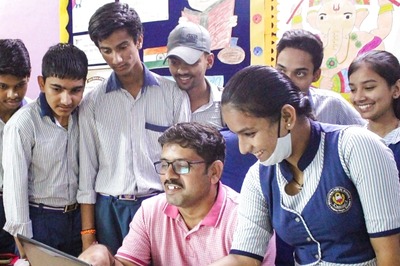


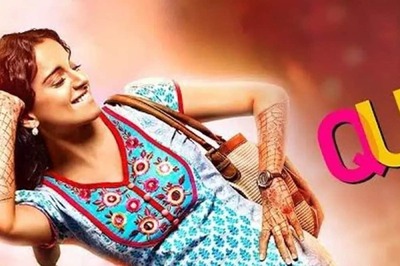
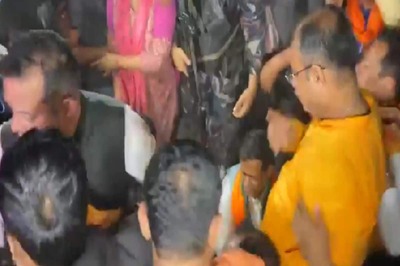
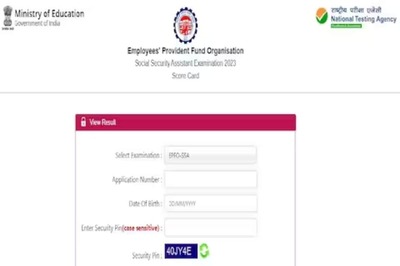
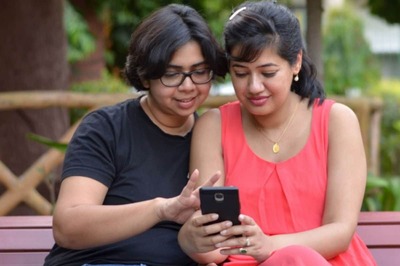
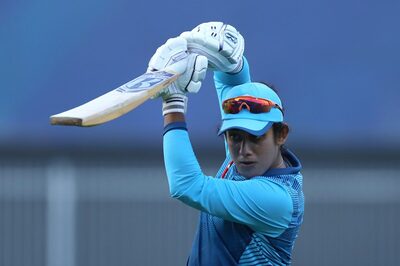
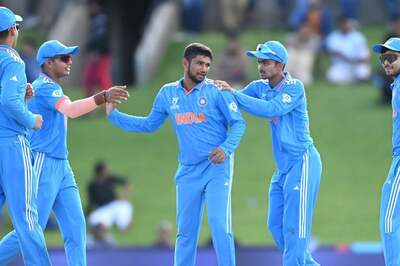
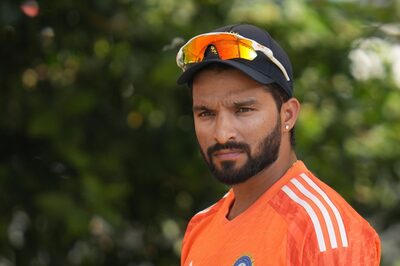
Comments
0 comment